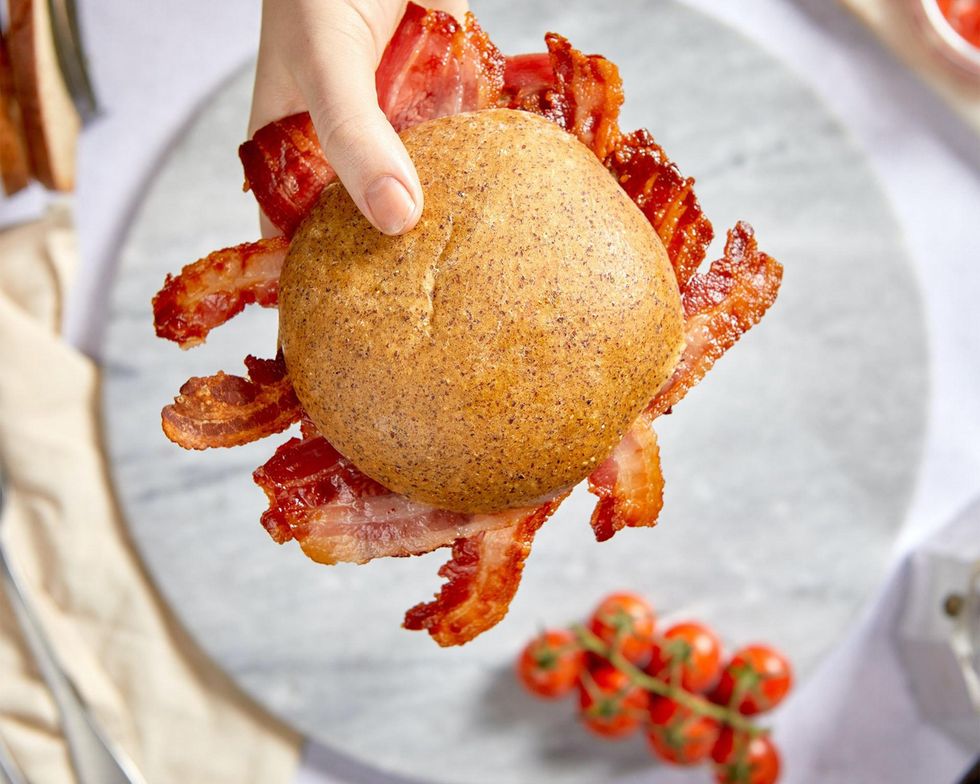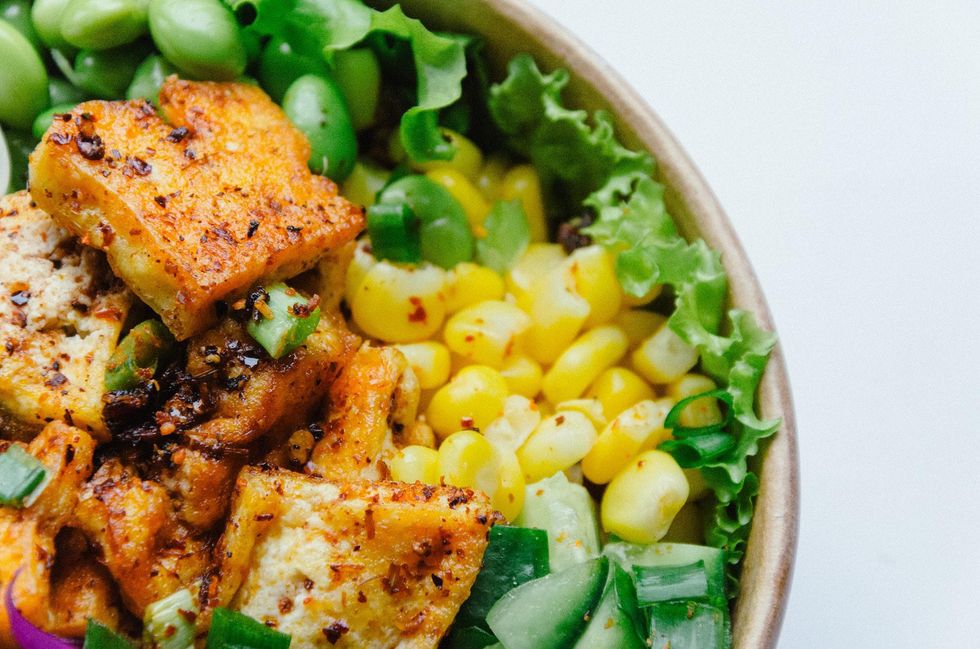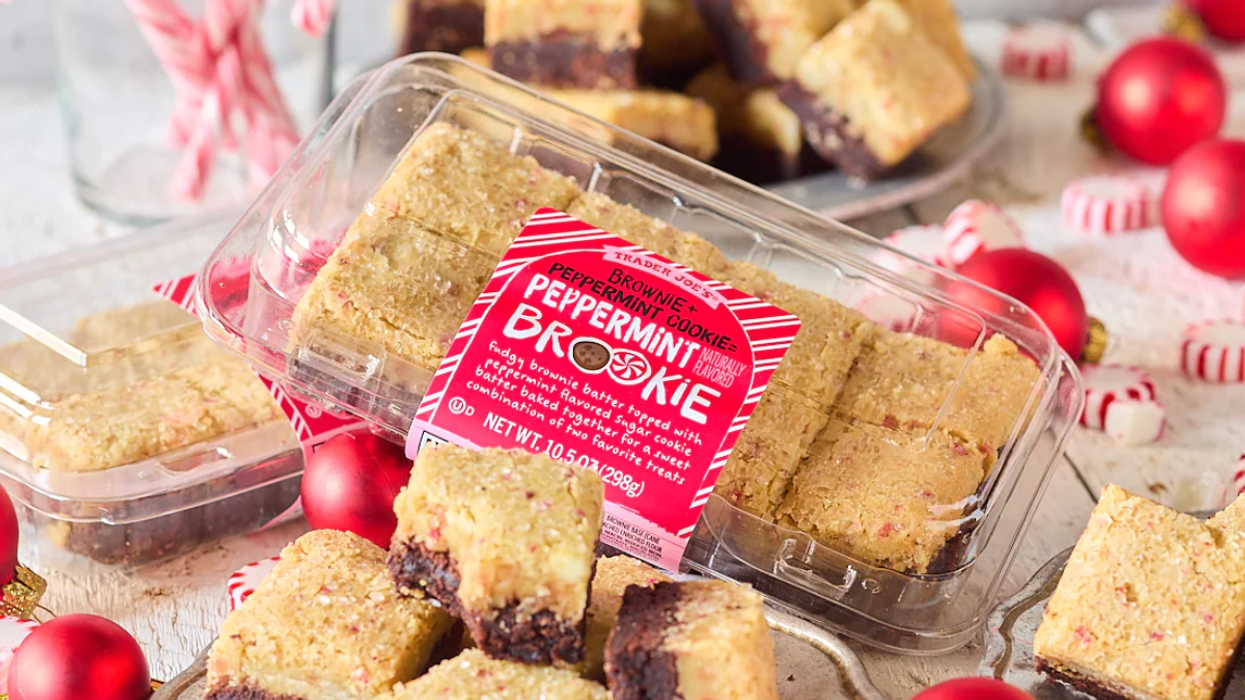You might be surprised.
These Are The Foods That Do and Don’t Increase Your Risk of Breast Cancer

Some days it seems like all kinds of things — especially foods — are causes of breast cancer. The Big C looms large in the news and our collective consciousness, especially in October, when pink ribbons appear all over during Breast Cancer Awareness month. Hearing reports on the news and social media that everything from artificial flavorings to microwave cooking could increase our risk, it's easy to feel confused — or just tune it all out.
As a month dedicated to the topic, October is actually a great time to get familiar with what's real and what's pseudoscience when it comes to breast cancer risk. Our diet definitely does have a major impact on our odds, and thankfully, it's one thing we can control. Here's a look at which foods have actual scientific links to breast cancer, and a few that don't.
The Definite Offenders

Processed food: We all know chips and candy are bad for our waistline, but did you know they actually affect your cancer risk? With their high content of sugars, fats, and all sorts of additives, products known as “ultra-processed foods" have been linked to cancer in general and breast cancer specifically. One study found a 10 percent increase in risk for every 10 percent addition of these foods to the diet.
Among processed ingredients, possibly the worst offenders are trans fats. As far back as the '90s, these chemically altered fats have been associated with breast cancer risk. And though the FDA has officially banned trans fats as of 2018, it may take a while for them to filter out of the food supply in your home. Check ingredient labels for “partially hydrogenated oils" to determine whether a food contains trans fat.
Alcohol: Getting buzzed too often isn't doing your “girls" any favors. Since alcohol can affect levels of estrogen and other hormones, it's associated with hormone-receptor-positive breast cancer. The Susan G. Komen Foundation reports that data from 53 studies found that, “for each alcoholic drink consumed per day, the relative risk of breast cancer increased by about seven percent." To minimize risk, limit your drinking to less than one drink per day, or eliminate alcohol altogether.
Red and Processed Meats: Bad news for burger lovers. High consumption of red meats has a confirmed connection to breast cancer. A Harvard study found that women who ate just one extra serving a day of red meat in adolescence had a 22 percent increased risk of breast cancer later in life. When eaten in early adulthood, the same extra serving accounted for a 13 percent increase. Researchers believe this is either because of the hormones used to raise most cattle or because of harmful carcinogens created when red meat is cooked at high temperatures.
Processed meats like salami, sausage, hot dogs, and deli meats have also joined the list of breast cancer no-nos. A September 2018 review in the International Journal of Cancer calculated that high consumption of these meats (25-50 grams daily) meant a nine percent increase in breast cancer probability. For reference, 25 grams is just under one ounce, which could be one average slice of bacon or the pepperoni on a single slice of pizza. Cut back by opting for white meat, fish, or plant-based proteins whenever possible.
And Some Non-Offenders

Soy: Because soy contains plant estrogens, it has long been suspected of playing a role in hormone-related health issues like breast cancer. But numerous health authorities have come out against this concept, pointing out that some studies have shown soy to actually have protective effects against breast cancer. On the other hand, many processed foods use derivatives of soy for preservation, and with their links to the Big C, you'd do well to stay away from those. Whole soy foods like tofu and edamame, however, can be a healthy addition to a cancer-preventative diet.
Dairy: If you ever saw the food documentary Forks Over Knives, you may recall its premise that in Asia, where people don't consume nearly as much milk and cheese as Americans, they don't end up with nearly as many hormone-related cancers like breast cancer.
Consensus in the medical community on the issue is not so black and white. A systematic review in the Journal of Breast Cancer that looked at 22 studies found that eating dairy was inversely associated with developing cancer — meaning that it actually led to less risk. At this point, it seems more research is needed before hard conclusions can be drawn about dairy and breast cancer.
Gluten: Gluten has taken the fall for causing all manner of other health problems… why not cancer? Operating on the belief that gluten can cause or aggravate systemic inflammation, some people have concluded that it could also be a factor in cancer development. But the science doesn't support this theory. The American Institute for Cancer Research states that “for people without conditions that make them sensitive to gluten, research shows no cancer protection from avoiding it." So unless you have celiac disease, non-celiac gluten sensitivity, or a wheat allergy, you're in the clear to continue to enjoy bagels, breads, and pasta — just opt for the whole wheat variety whenever you can.
Have you changed your diet to avoid causes of breast cancer? Tweet us at @BritandCo
Featured image via Priscilla Du Preez/Unsplash.
This article has been updated.












